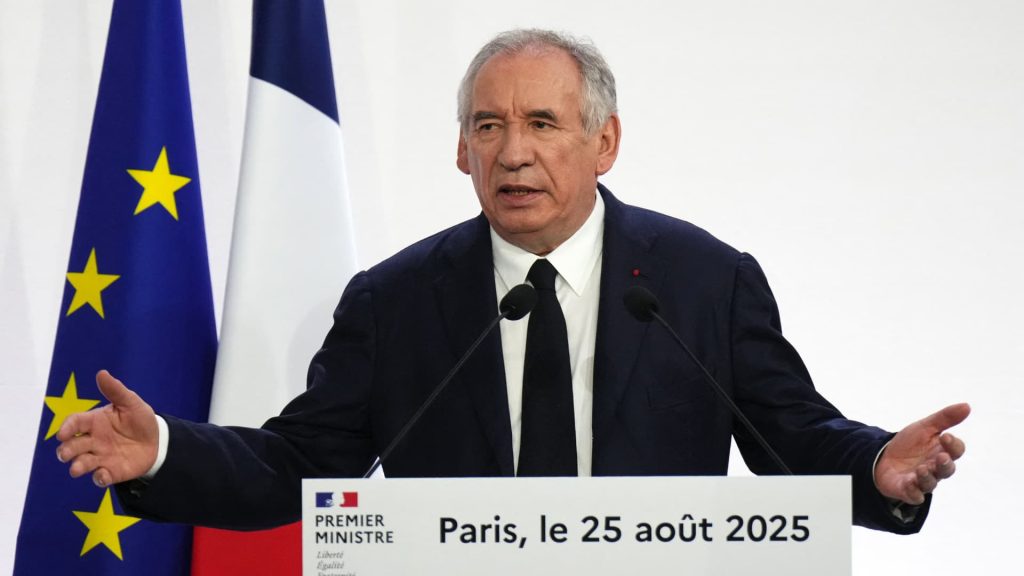French Government on the Brink of Collapse
On August 25, 2025, French Prime Minister Francois Bayrou addressed the media during a press conference in Paris. His minority government is now facing a potential collapse, as opposition parties have expressed refusal to support him in a confidence vote scheduled for September 8, linked to his budget austerity measures.
Market Reactions
The CAC 40 index fell by 2% in early trading on Tuesday, reflecting market unease. Furthermore, France’s longer-term borrowing costs climbed, with the 10-year bond yield increasing by 2 basis points and the 30-year yield rising by 4 basis points.
Controversial Budget Cuts
Reducing the public deficit in France has been a contentious issue for years. The previous minority government led by Michel Barnier collapsed after it tried to implement the 2025 budget without parliamentary approval. Following the indecisive results of the July 2024 parliamentary elections, political instability has intensified.
Bayrou is seeking to advance a 2026 budget with roughly €44 billion ($51.2 billion) in spending cuts, which include freezing welfare and pension expenditures and tax brackets at 2025 levels. His proposal to eliminate two public holidays has garnered significant public backlash.
Echoes of Debt and Deficit
The government argues these budget cuts are essential to address a deficit that reached 5.8% of GDP in 2024—a figure expected to climb without intervention. The EU recommends member states target a deficit of 3% to reduce excessive debt burdens. Meanwhile, France’s economic growth has remained sluggish, tapering to 1.2% in 2024 from 1.4% the previous year.
Political Reaction
During a press briefing, Bayrou characterized France’s reliance on debt as “chronic,” warning of the risks of over-indebtedness. He pointed out that French debt had surged by €2 trillion over the past 20 years, navigating various crises. Opposition parties including the National Rally, Greens, and Socialists have indicated they will not support him, heightening the risk of government failure.
Pierre Jouvet, Secretary of the Socialist Party, confirmed the party’s intent to vote against Bayrou, expressing that the government lacks both parliamentary and public confidence.
The Potential Outcomes
Should Bayrou lose the confidence vote, analysts suggest President Macron may appoint a new Prime Minister, who would need to address passing the 2026 budget urgently. Alternatively, Macron might opt for snap elections, though current polls anticipate a fragmented outcome reminiscent of the 2024 elections, with the far-right National Rally leading.
Uncertain Future for Bayrou
While the outlook for French assets is not promising, analysts caution that it is too early to predict Bayrou’s demise. Some strategies could still sway the opposition, such as retracting unpopular austerity measures. However, political analysts believe the trust deficit between Bayrou and opposition parties is significant, making his loss highly likely.
A potential no-confidence vote from multiple parties could easily surpass the necessary majority needed to oust the government. Experts speculate about the aftermath, indicating that the results could push towards another election, given the current challenges in governance.



